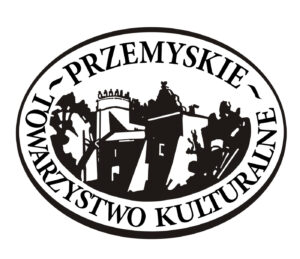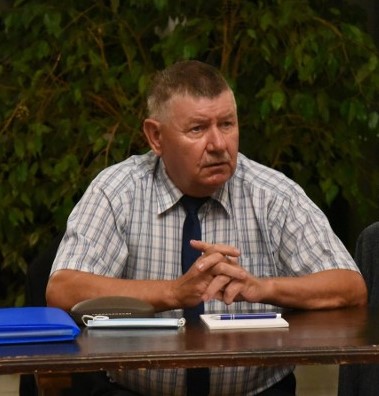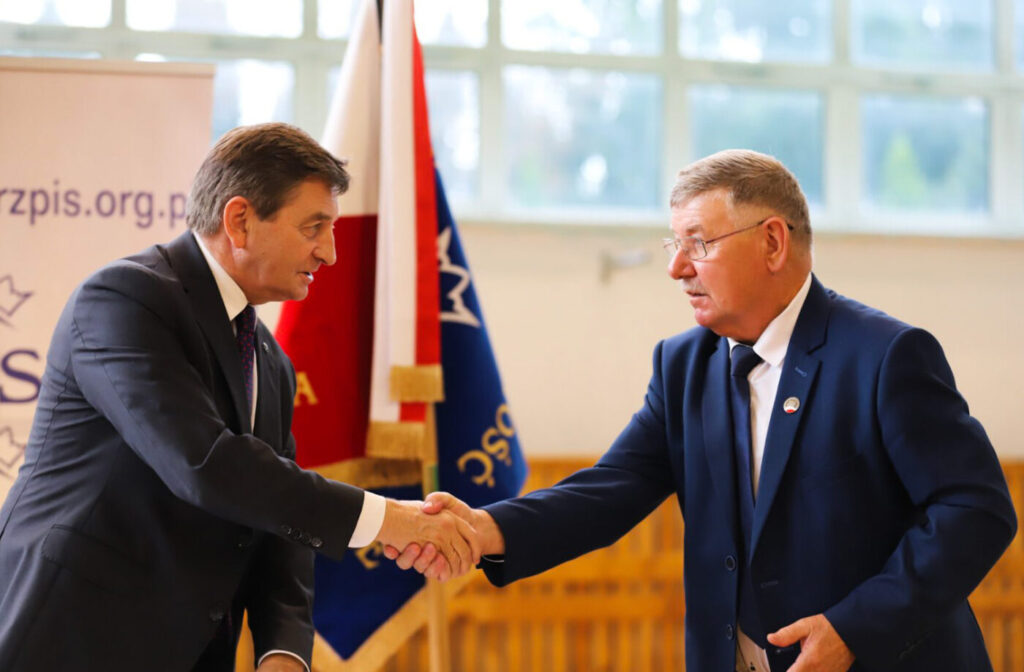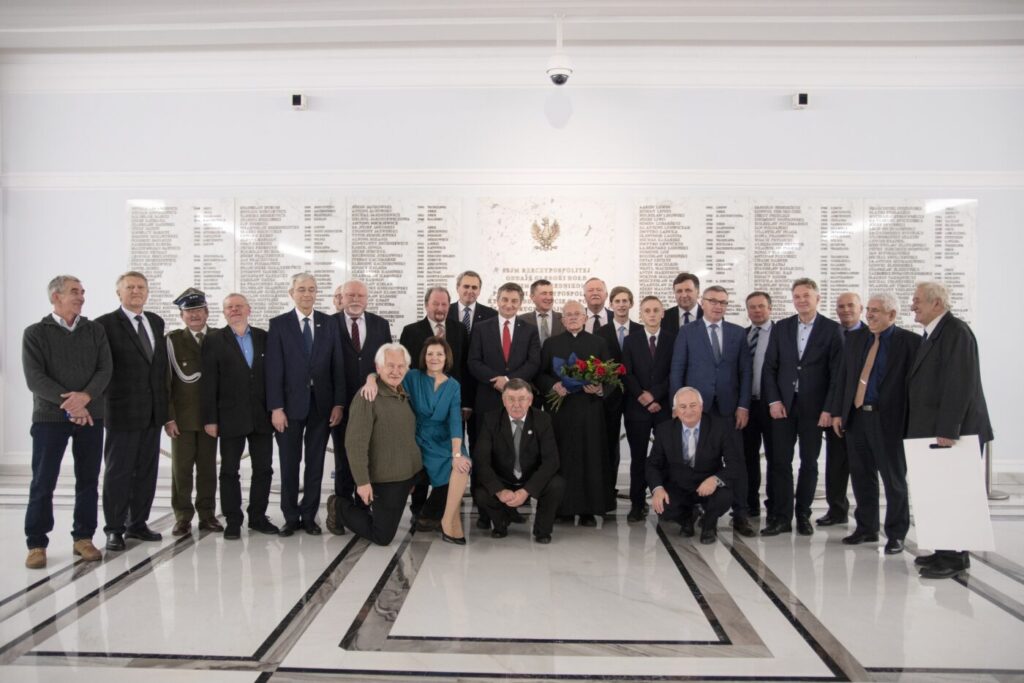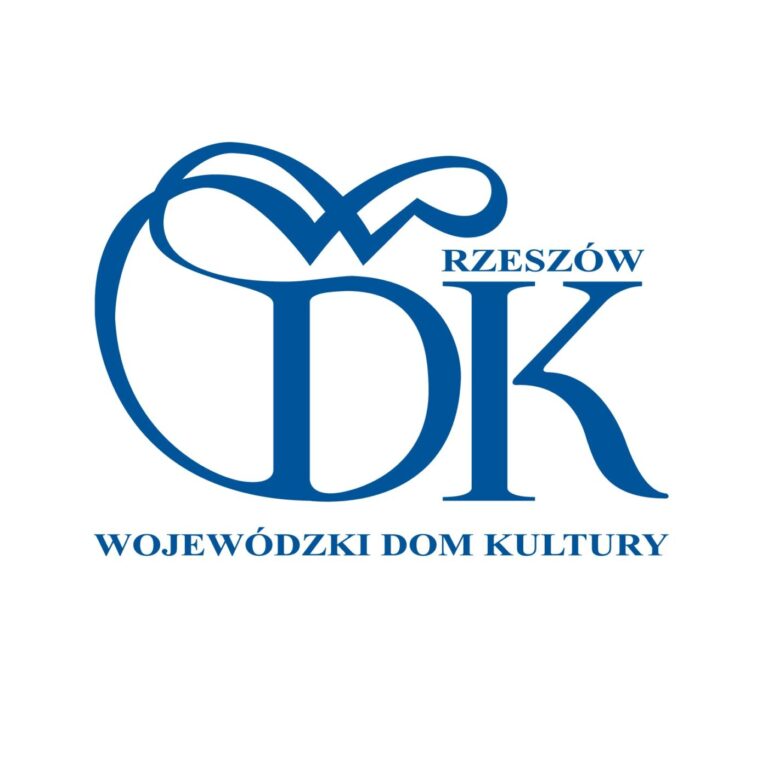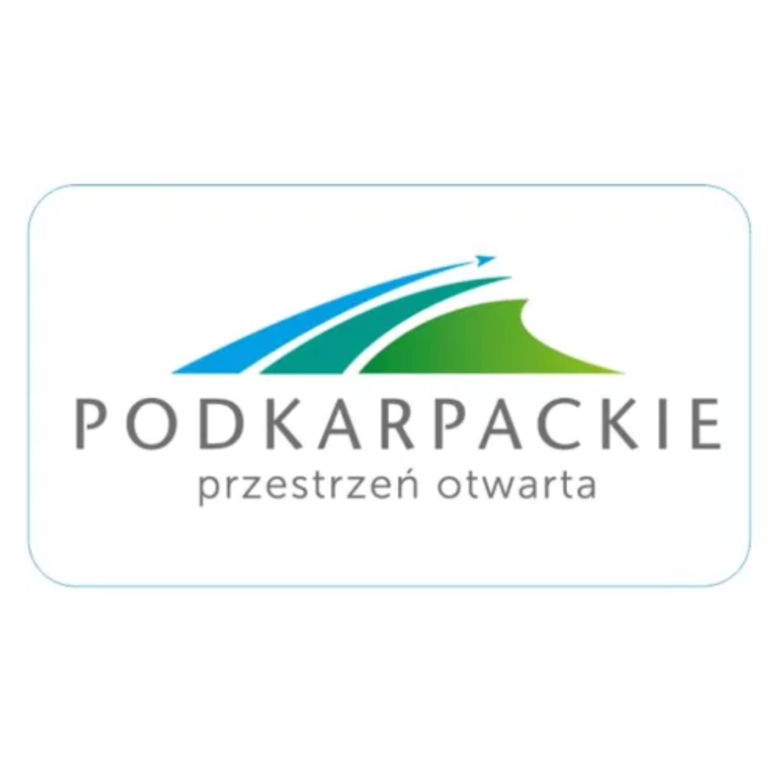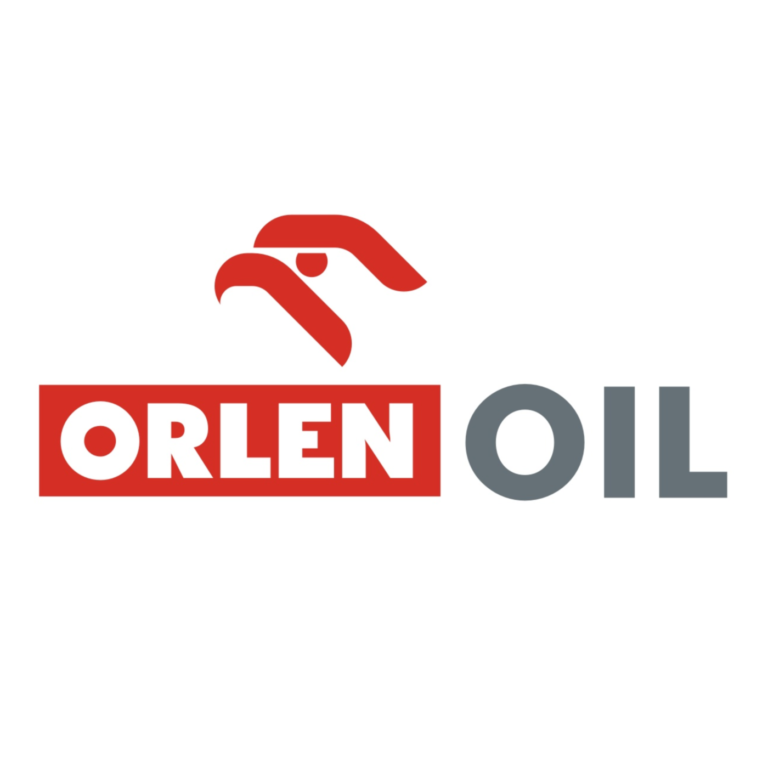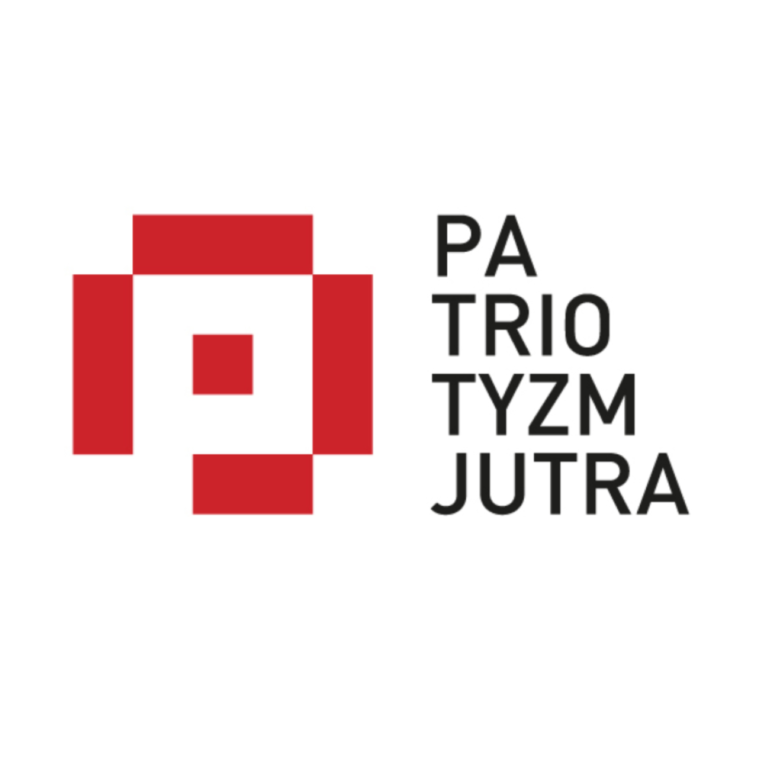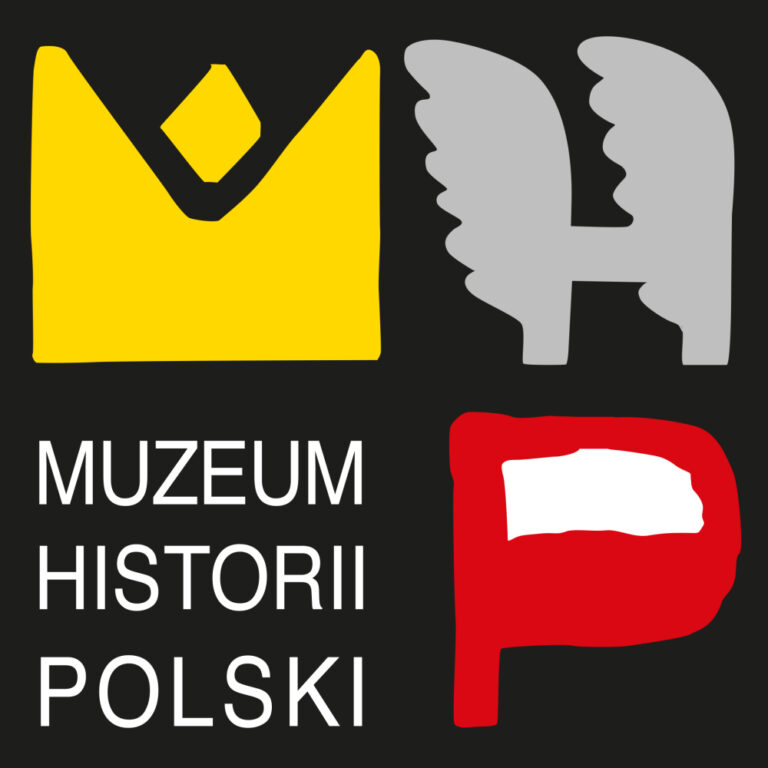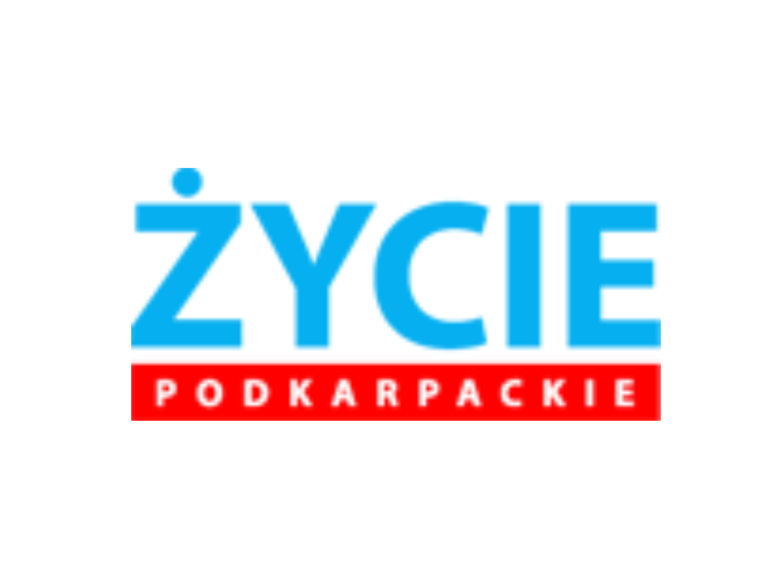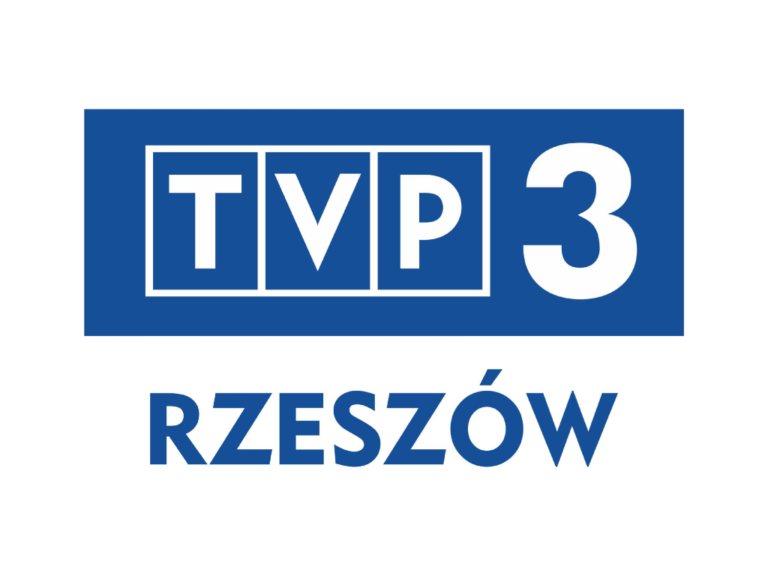Opposition activities of Henryk Cząstka
From the author:
In the 1980s in the Przeworsk district and the then Przemysl province, one of the most active farmers involved in opposition activities against the communist dictatorship of the People's Republic of Poland was Henryk Cząstka from the village of Kisielów near Zarzecz. He was a co-organizer of the Rural Solidarity in September '80 and the Solidarity of Individual Farmers in early 1981. Organizer of the only strike in Poland - in the fall of '81 - in the municipality of Zarzecze.
After his release from internment, he was extremely active in Przemysl's underground Solidarity structures: co-organizer of the All-Poland Farmers' Defense Committee and printer and distributor of independent publications. He paid for this activity with several months of investigative detention.
After the amnesty and release, one of the most active nationwide organizer and participant of the farmers' food aid campaign for urban workers. And finally, in '89, an active member of the Solidarity Citizens' Committees.
The author's paper below is based largely on an interview with Henryk Cząstka, conducted in late October 2022.
.
KOR and participation in the farmers' strike in Zbrocza Duża
.
In 1978, Stanislaw Sudol came to the parish priest in Zarzecz and asked him to select from among the faithful of that parish someone brave enough to sign up for the Workers' Defense Committee. Without a second thought, the parish priest chose Henryk Cząstka, without even asking his permission.
Henryk Cząstka: Well, but of me it was such a "KOR" that I never really became active there. However, it was my formal joining of the KOR that came in handy. My data reached the headquarters in Warsaw, and as a result, in September 1978 I received an invitation from Wieslaw Kęcik to participate in a farmers' strike in Zbrocza Duża in Mazovia, which he co-organized. There, the authorities were forcibly buying up land from individual farmers for a pittance in order to establish collective farms. The farmers there were already quite integrated, because earlier, under the leadership of the very energetic Father Czeslaw Sadlowski, they had successfully fought for permission to build a church, and had signed and sent appeals to the Council of State for the release of participants in the June '76 protests and KOR activists. Thus, Fr. Sadlowski's September appeal for a strike gathering at the parish was supported by many local farmers. Several hundred more from all over Poland, including from the list of KOR members, were invited by Wieslaw Kęcik. He, incidentally, had permission to organize the strike from the Episcopate.
This invitation somehow reached me. However, I wanted to call Wiesek to find out the details. In our village there was only one phone. It was a business phone at a friend of mine who worked at the post office. Two of my acquaintances worked there, by the way, and they knew when there was and when there wasn't a wiretap. They instantly connected me to Kęcik in Warsaw, who asked me to appear in Zbrocza Duża on the morning of Saturday, September 9.
At that time it was not easy to get there. In Grzędy near Garwolin one had to get off and continue - 6 kilometers - on foot. In Zbrocza I found crowds of farmers. There were probably about a thousand of us there, including many KOR members. It was such a specific strike. There was more prayer than speeches. Well, because how were the farmers supposed to strike, to fight against the authorities with what?
The result of the gathering was the establishment of the Grójec Land Peasant Self-Defense Committee by local farmers. A resolution was also signed demanding a change in the pension law for farmers and declaring support for those repressed by the authorities.
Of course, the Security Service was aware of what was going on in Zbrocza Duża. Many SS men surrounded us from afar and just watched what would come of it. Probably the authorities were a little frightened by this event, because they nevertheless abandoned the forced purchase of land for a collective orchard farm. So all in all, this strike, or rally, ended both mildly and positively.
.
Agricultural Solidarity and Farmers' Chaplaincy
.
In the following years, Henryk Cząstka took part in a few other strikes and farmers' rallies. Among other things, in January 1981 he participated in the farmers' strike in Rzeszow and visited the strike in Ustrzyki Dolne. In March of that year, he was a delegate to the convention in Poznan, where the independent peasant movement was united in the Independent Self-Governing Trade Union "Solidarity" of Individual Farmers.
Henryk Cząstka: In Poznañ, there was a battle for the leadership of the Union between Ślisz, Janowski, Hadko and Wagner. Jozef Slisz outsmarted everyone, because he put forward the youngest of them, a farmer from Cieszacin Wielki, Jan Kulaj, and it was he who became chairman of the NSZZ "Solidarity" RI. However, later, when it was necessary to go somewhere for talks to the authorities, it was only Slisz himself who went, even though Kulaj was the chairman after all. And as a result of these talks, Slish basically agreed to everything. In addition, he was probably the first to want to privatize the state forests, which I fiercely opposed. And we even quarreled on this background. In addition, I wanted the creation of Agricultural Solidarity Regions under the old administrative arrangement of the country, so that there were only 17 Region chairmen. Because then it would be easier to get along. However, disregarding all this, I proceeded. In total, I founded 54 Circles of Solidarity of Individual Farmers, starting from Strzyzow to Nisko and Rudnik.
For me, however, the more important task was to establish the Farmers' Chaplaincy. And it worked at our place in Zarzecz non-stop. Sometimes 500 or even about a thousand people came to these meetings. If there were more than 500, they could not fit in the parish hall in Zarzecz, so we moved to Przeworsk. And it even worked out pretty well for us. Such well-known people as Professor Stelmachowski, Fr. Jancarz, Fr. Tischner, Fr. Piwowarski, Jan Musial and Andrzej Zakrzewski came to our pastoral ministry with lectures. However, the one most liked by us was Prof. Jan Draus. Well, because he spoke to us in such a simple language, understandable to all. And very interesting.
We held these meetings as part of the Pastoral Care for Farmers once or twice a month, and sometimes even more often. Each began with Mass, and then there were lectures: history, politics or practical advice on how to behave, for example, in the event of the imposition of martial law. These meetings became very popular among farmers, because people could discuss and socialize. They were basically secret, or at any rate unofficial, but of course many former Pezetper hangovers came, too, dropping their party cards and signing up for Solidarity. We guessed, however, that they were doing it not to build this Solidarity, but to smash it from within.
Municipal strike in Zarzecz
.
Henryk Cząstka: Just before Martial Law was imposed, I organized an almost week-long occupation strike at the municipal office in Zarzecz. What was the reason for the strike? It was related to the recommendation of the Solidarity headquarters to organize such strikes throughout Poland and make nationwide demands. And I did just that. Of course, the head of the municipality had no chance of implementing any of these nationwide demands, but such strikes nevertheless had propaganda significance. Only that this intended nationwide action turned out to be a dud. For everyone let it go, and only I in Zarzecz managed to carry out such a strike. It ended, by the way, with the signing of an agreement with the head of the municipality, which was picked up by the media and went nationwide.
As it soon turned out, the authorities were then preparing to impose martial law, so they were ready to sign any agreement. For them, it no longer mattered.
After that strike, I went to Nowa Huta at the invitation of Father Jancarz, among other things to attend an author's meeting with poet Czeslaw Milosz. This meeting took place on Thursday, on Friday we discussed union matters with the steelworkers, and on Saturday, December 12 in the afternoon I returned home. Somewhere at 10 p.m., the television was broadcasting coverage of the first Cultural Convention after the war. Various writers spoke, and when Milosz began to speak, the TV suddenly began to malfunction and nothing could be heard. After three days in Nowa Huta, I was quite "flabbergasted," so I turned off the TV and went to bed. When I was almost asleep, I heard my wife's voice: "Heniu get up, because some men have come to you."
Martial law - internment
.
Henryk Cząstka: In a moment, armed SS men entered the room and ordered me to get dressed immediately. I understood that it was martial law that was being imposed. In fact, we had been expecting it for some time, although we did not know when it would happen.
Of course, I was interned. They kept me first in Uherce. The conditions of staying there and the meals were so despicable that in protest one day, in April '82, we simply destroyed the interior of our pavilion.
It happened after 10 p.m. One of the keys, incidentally, the one who treated us best, was on duty himself. The cells were still kept open then. So we took him hostage, making a deal with him that we would treat him well and release him after the strike. We took the mattresses outside from the pavilion, poured margarine on them and set them on fire. As it all went up in flames, the militia "bitches" arrived at a signal. We quickly barricaded ourselves in, but when we saw a double cordon of SS men with machine guns, we realized that we had no chance. So we surrendered.
As punishment, we were transferred to the prison in Novy Lupkov. This, however, turned out to be more of a reward, as conditions there were much better and the treatment more lenient. Commander Dabrowski behaved decently towards us. Moreover, hot water was available there and the cells were open all the time. True, the exit to the outside was barred, but the grating on the outside had a key inserted in it. So it was possible to put one's hand through it, open the lock, well, and go outside. We went out, we could lie down on a blanket in the grass. It's always different from being in a cell. This went on for about three weeks, until such an avid patriot Mikolovich, with someone else, made a loud demonstration to celebrate May 3. There were three pavilions of prisoners separated from each other.
The effect of this was that after the demonstration was over, the commandant brought in a welder who very narrowly welded the eye of the bars. Well, and there was an end to going outside the pavilion. It reminded me of the cautions of my Siberian dad, once imprisoned by the Soviets: "Son, so that you never try to be a hero in prison, because you will be of more use to Poland as a living person than as a dead one." Well, and I make no secret of the fact that I followed this advice when I was arrested a year later and locked up in a detention center for a longer period of time.
Jan Karus and I left the prison in Novy Lupkov in mid-May 1982, as the last interned farmers.
.
Printing of underground publications
.
Being already at liberty, Henryk Cząstka did not remain idle for long. Soon Marek Kaminski, head of the underground Solidarity structure of the Przemysl Region, visited him at his home in Kisielow. He brought with him a printing press, a Belgian protein duplicator, did a short training course and offered to deal with the printing of opposition, anti-communist underground publications.
Henryk Cząstka: I ran this printing house myself, which was commissioned by Marek Kaminski. I ran it for a long time. I printed such underground newspapers as "Hutnik," "Tygodnik Mazowiecki," "Solidarność Walcząca," as well as books by the Independent Publishing House "NOWA," and various leaflets. I printed this in the crypt of the Dzieduszycki family in the basement of the parish church in Zarzecz. I was aware, of course, of the high risk of a slip-up, so I organized it in such a way that the underground Solidarity activists distributing the magazines I printed would pick them up folded in the bell tower. They had no contact with me and knew nothing about me, and I knew nothing about them either. This provided a certain guarantee that in the event of a slip-up, no one, even under torture, could snoop on anyone.
Later I printed from matrices at home. The commander of the Militia post in Zarzecz, Jozef Wywrot, found out about this. However, instead of arresting me, he began to help me in this activity. He would bring the dies to my house. He would pick them up from the train station in Yaroslavl, where they were delivered from Warsaw by trusted railroad workers in a mail car.
Finally Józek warned that the SS were beginning to take an interest in me. So in order to save the precious duplicator, I transported it to Staszek Naspinski, in Lady Kostkovskie, some 7 kilometers outside of Yaroslavl. I used to come there to print a little, too. As it would get really dangerous, he was to drown this printer in the San River.
How I met Commander Wywrot
Henryk Cząstka: The militia commander in Zarzecz, Jozef Wywrot, came from somewhere in Węgierka. He was a very good man. When a peasant drove after a drink or came back from the field without lights, he would turn around and pretend not to see it. If he was already giving a ticket, then someone had to deserve it well. And when militiamen from other stations arrived and caught a local peasant with a minor infraction, he would ask them: "Leave him, and let him go. Don't you see how worked up he is and how soiled he comes back from the field?"
And we met Commander Wywrot in 1972 on the occasion of a session of the Municipal National Council. At that time I was working in the Provincial Council of People's Sports Teams, and here in Zarzecz I was the communal chairman of the LZS. Well, and the secretary of the Commune Council invited me to this session. And it was a very important session, to which a delegation of the Provincial Committee of the Polish United Workers' Party (PZPR), headed by its first secretary Zdzislaw Drewniowski, descended from Przemysl.
During the session, I spoke up. I began to demand more professional equipment for folk sports teams, as well as nutrients for the youngest athletes. And since these things were only available for dollars at the time, I asked that adequate funds be secured for such essential purchases.
I found myself in a rather conflicted situation, because not only did I accuse the authorities of neglecting people's sports, but I used the word "master" and not "comrade" differently than everyone else present, addressing the first secretary of the Provincial Committee of the PZPR, or the secretary of the Commune Party Committee, who also served as chairman of the Commune Council and chaired this session. And here I must admit that Zdzislaw Drewniowski somehow swallowed it and did not pay me any attention. On the other hand, the secretary of the Commune Party Committee reminded me every time that I should call him "comrade." So I answered him that I am not a member of the PZPR, and therefore he is not a "comrade" to me, and I will just address him by "sir." This enraged him and he even wanted to take away my vote. He didn't succeed, so he declared a break in the session.
During this break, the militia commander in Zarzecz, Jozef Wywrot, approached me discreetly and spoke in a hushed voice: "Listen, peasant, I'll come to your house in the evening, then we'll talk. But please don't come into the session now, because if you do, I've been instructed that I'll have to forcibly escort you out of the room. I wouldn't want to do that, because I respect you for your courage and for what you told them. And I may still be of use to you sometime in my life."
I liked his words very much. Of course, I listened to him and after the break I did not return to the hall. And in the evening we chatted over a cup, well, and so we became friends.
Arrest
.
Henryk Cząstka: One morning in March '83, somewhere around 6 a.m., someone knocked hard on the door of my house. Well, and nine uniformed men armed with rifles entered the room and told me to get dressed. While getting dressed, I looked out of the corner of my eye through the window to see if it would be possible to somehow elude them. Among these uninvited guests was Commander Jozef Wywrot. He was standing first in line, and when he noticed my looking in the window, he shook his head, signaling me not to do so. And indeed, the entire courtyard was lined with esbek and militiamen with dogs.
He had previously warned me more than once before a planned search to remove trefty items from the house. And also during the search, when the SS men were going through every shelf and every book, he would sometimes tell them: "here you can not search, because I have already searched here". These SS men usually came to the search hunched over and listened to him. And if he found something trefty, he would discreetly nod at my wife, and she would carry it out in an apron.
Esbeks did a thorough search this time and, unfortunately, in the basement they found a thousand reams of paper already printed, and in the barn they found another thousand blank. I put it together at my place already after the printing had stopped, because I had nowhere to give it. I counted on the fact that if I dropped by, it was not likely to be at home, but somewhere in the field.
I was arrested and placed in a detention center. I sat alone in a cell. They locked me up at 2 p.m., and the hearing was to be at 10 p.m. I had eight hours to come up with some reasonably plausible version of my testimony. I frantically thought about what I should say.
.
Detention center and interrogations
.
Henryk Cząstka: During the first interrogation, twelve SS men stood around the walls of the small room, one at the typewriter and the interrogator on the other side of the desk. Of course, glaring lamps pounding a stream of light straight into their eyes. The interrogators changed every now and then.
I testified that these printed risks were brought to me by someone from Rzeszow, but I don't know who, because he didn't introduce himself to me. Well, and he told me to hang them all up and distribute them to people, and if I didn't, I would be punished. But I didn't want to distribute them, so I hid them in the basement to burn them in the boiler room. In two days someone came from Rzeszow again, checked, and threatened me, so I assured him that it would be distributed.
It seemed to me that they believed that I wanted to burn those reams of printed paper in the oven. They wrote my testimony on six typewritten pages. And on each subsequent
interrogation I had to remember to say the same thing. It was dozens or maybe hundreds of these interrogations. If I sometimes made a mistake in something, the interrogating esbek would correct me. However, the main point of these testimonies was the same.
During the first interrogation, the SB officer, looking me straight in the eye, began slowly, with emphasis, straining his words: "We did another, this time a more thorough search in your buildings. And we found interesting things. Do you associate with the RKW? Because we know what it is."
He meant the Regional Executive Committee, of which I was actually a member. I, however, overheard, and at the first moment the thought struck my mind that they had found a RKM. Because indeed my father had a RKM hidden in the barn, still from the war, that is, a hand machine gun and a couple of grenades. Only dad and I knew about it. When I thought that now Dad would be put in jail, the blood went to my head. The investigator must have noticed, because he said: "We are watching every expression on your face. And you have just turned red at this moment. So please don't hide anything, just tell the truth and confess!"
And here the investigator made a mistake, because he inadvertently made me realize that I had to keep a stony expression on my face during interrogations. No emotions or shrugs. Well, and in hundreds of subsequent interrogations I already knew how I was supposed to behave. And so, for example, at one interrogation an SB officer says to me: "You have a young wife. Well, you are sitting here, and there young neighbors come over to her. As soon as one goes out, another one comes in. So wouldn't it be better to reveal everything, testify, quickly return home and watch over your wife?" And saying this, he hands me a blank sheet of paper and a pen. So I took the pen in my hand and write: "I would very much like to continue to stay in prison, because since the neighbors are taking such good care of my wife, I don't need to return to her anymore." And he to me: "Well, what are you writing here!" Angrily, he snatched the piece of paper from my hands and tore it up.
On another occasion, I was interrogated by a prosecutor whom I remembered from my days as an employee of the Provincial Sports Federation. He, too, remembered me and behaved in a friendly manner towards me during the interrogation. When, after the interrogation, I was about to put my signature at the very bottom of the sheet, he stopped my hand and said: "Mr. Hyen, when you sign the testimony protocol, you have to put your signature just below the text, so that there is no empty space. So tight that not even a razor blade can be inserted between the last sentence of the text and your signature. Because if you sign at the very bottom, you have to reckon with the fact that someone can still add a lot there. Later on, I always followed this advice.
I was threatened with up to 16 years in prison for leading an anti-state movement, including the printing of illegal publications. Fortunately, the secret police could not prove this to me, because I organized this printing activity in such a way that no one knew about it and did not associate it with me. Well, except for Marek Kaminski, who commissioned it for me, and Commander Jozef Wywrot, who supplied me with matrices from the train.
.
Food for workers in cities
.
Under the amnesty announced, Henryk Cząstka was released from prison in August 1983. He immediately returned to action. He was greatly impressed by the appeal delivered by Bishop Ignacy Tokarczuk at the harvest festival in Czestochowa to farmers, so that - in a situation of empty shelves in stores - the Polish countryside would help feed working families in the cities. Without hesitation, he joined this action and for at least four years was involved in food collection.
Henryk Cząstka: When I got out of prison, I collected food from farmers all over the diocese of Przemyśl. I had personal authorization from Bishop Tokarczuk and the Bishop's Curia. And on the recommendation of the chancellor, Fr. Stanislaw Krzewinski, Fr. Stanislaw Bartminski, a parish priest from Krasiczyn, traveled with me from parish to parish and introduced my person to the faithful.
And it started one evening, when I was just plowing a field. My 6-year-old daughter came running to me and said: "Daddy, come home quickly, because our priest came to see you with some gentleman." This "gentleman" turned out to be precisely Father Bartminski. He handed me an authorization from Bishop Tokarczuk and told me to take care of the food collection in the diocese. At the same time he emphasized that Bishop Tokarczuk personally chose me to carry out this task. I don't know why exactly me, but apparently he had confidence in me. Well, at first Fr. Bartminski went around with me to all the parishes of the Przemyśl diocese. The Przemysl Solidarity activist Zygmunt Majgier drove us with his pledge.
After that, I was already driving all over the diocese with such a local owner of an old one with a trailer, and collecting this food from farmers. In total, hundreds of tons of various food, and during Easter, hundreds of thousands of eggs. I walked with this authorization from Bishop Tokarczuk to every parsonage, and every parish priest was obliged to receive me and present me to the faithful in church. Farmers, especially in the first two years, were very generous with these donations. They were mainly various vegetables, flour and eggs. People gave as much as they could: half a kilo of flour, a head of cabbage, a few eggs each. Sometimes it was heart wrenching.
And so, for example, in Hureczek near Przemyśl, one poorly dressed grandmother brought us half a kilogram of sugar. And sugar was valuable then, because it was sold only on ration cards. Well, she gives me this sugar, saying: "Take this for the workers in Nowa Huta." When I saw this biddy, I wanted to help her rather than take anything from her. Well, so I said, maybe she should take the sugar back for herself, because she certainly needed it. But she didn't want to hear about it and insisted. So I took that little bag of sugar in the cab and in Nowa Huta I personally handed it to Father Jancarz, asking him to pray for that poor babinka. I experienced many such touching examples of good human hearts.
This is how I acted from the fall of 1983. For four years systematically, and then only randomly. The action began in October and lasted until the frosts, that is, usually until mid-November. We carried these hundreds of tons of crops to the Bernardine Fathers in Cracow, to the Stanislaw Kostka parish in Warsaw, also to the cathedral in Lublin and Katowice, and most to Father Jancarz in Nowa Huta. There they were in charge of distributing it to workers affiliated with the underground Solidarity movement. And I consider this action, which lasted several years, to be one of my most important activities.
I must also mention our initiatives related to the action of collecting food for the workers. Well, with the late Rev. Kochman of Łańcut, we organized a campaign for the children of workers from Silesia to come to us for rural vacations. And in turn, our children went to Silesia for winter holidays. In addition, we organized the so-called White Sundays, that is, the arrival of doctors from Silesia to us for weekends. There in Katowice, Fr. Bartminski's sister Maria, also a medical doctor, organized doctors for this action. Well, and these doctors, as if in revenge, did free examinations of our residents. People flocked to them in large numbers. We did this for the people, of course, but also as a bit of propaganda. Party officials were going crazy, but there was nothing they could do to stop this action.
.
Krasiczyn meetings
.
Henryk Cząstka: Later, I also went to retreats for underground Solidarity activists at Father Bartminski's in Krasiczyn. We always gathered in the rectory after morning mass, and there were already conversations there that were not necessarily religious. Political discussions, chitchat, and making plans for further Solidarity activities predominated.
On one occasion, I look out the window and see a guy in a leather coat apparently watching the parsonage building. In him I recognized the SB colonel who once, during my printing activity, directed the search at my house. So I went downstairs, stood in the doorway, and he comes up to me and says: "Good morning, Mr. Particle. And what do you have here in this rectory?" I say: "Well, you know, this clergy always gets me into whatever. Here the parish priest told me to take care of those damn alcoholics. Well, and I have to keep an eye on them, because some of them came from our parish, from Zarzecz". And to this he with a smile of satisfaction: "So this is a meeting of alcoholics? That's good. Thank you, sir, for the information." Well, and off he went.
Well. I floated him, protecting the Solidarity underground activists gathered at the rectory. He, on the other hand, wrote down in his official note that he managed to get information from me. Andrzej Kaczorowski from Warsaw told me about it.
(The interview was conducted and authored by - Jacek Borzecki)
.
